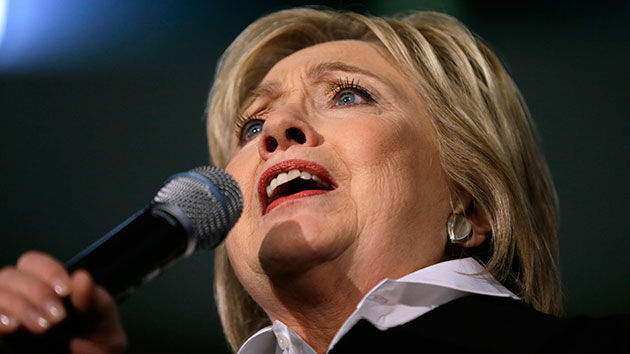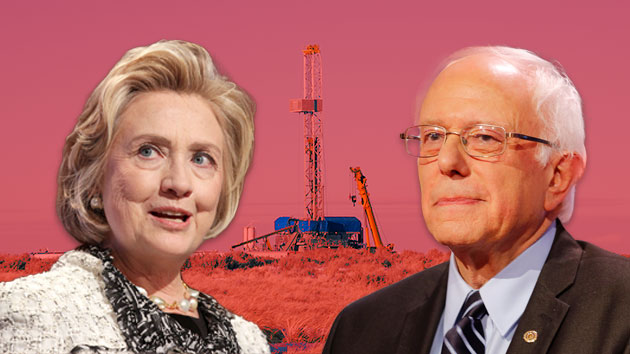
Charlie Neibergall/AP
Just one day after Hillary Clinton issued a lengthy apology for a controversial comment she made about Nancy Reagan’s contribution to the fight against AIDS, the Democratic front-runner made another unforced error during a CNN town hall event on Sunday night.
Speaking in Ohio about her plans to revitalize coal country, Clinton said, “We’re going to put a lot of coal companies and coal miners out of business.” That comment was immediately preceded by a promise to invest in the clean-energy economy in those places, and immediately followed by a pledge to “make it clear that we don’t want to forget those people.” But it’s not hard to guess which comment will end up as a sound bite in attack ads in coal states during the general election.
Clinton’s statement likely referred to her support for President Barack Obama’s Clean Power Plan, the cornerstone of his climate policy, which will require states to reduce their coal consumption in favor of natural gas, renewables, and energy efficiency. It garnered a quick rebuttal from Sen. Rand Paul (R-Ky.).
She vows to finish @barackobama‘s war on coal and Kentucky. #DemTownHall
— Dr. Rand Paul (@RandPaul) March 14, 2016
Kentucky voters know which party in Washington is trying to destroy their state and industry and they know I am fighting for them.
— Dr. Rand Paul (@RandPaul) March 14, 2016
Obama’s climate regulations have little to do with the coal industry’s decline over the last decade. For one thing, they are currently held up in court, and they wouldn’t take effect for several years anyway. More important, coal is getting hammered by competition from natural gas made cheap by fracking, as well as the exploding solar and wind industries. In the last town hall, Clinton said that under her administration, “I do not think there will be many places in America where fracking will continue to take place.” Since a widespread decline in gas consumption would most likely lead to an increase in coal consumption, it’s possible that Clinton’s energy policy could be just the opposite of the “war on coal” Paul describes.
Although Bernie Sanders is also a vociferous proponent of clean energy, Clinton is so far the only candidate in the race to produce a specific plan for supporting coal communities affected by the transition to a cleaner energy economy. Still, Sanders appears to be crushing Clinton in coal states that have had primaries so far. So it probably doesn’t serve her campaign well to remind people that for a small number of communities, the fight against climate change could mean the end of a traditionally important field of employment.
















